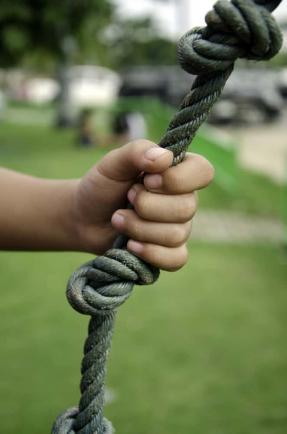
"Start where you are. Use what you have. Do what you can." - Arthur Ashe
The great Arthur Ashe said so much in these few words. There are huge lessons in them that we would be wise to teach our children. It is so easy for children to become overwhelmed-keeping up with studies, extracurriculars, chores, finding and growing talents, following their dreams through the day-to-day struggles, living in circumstances like poverty or bad neighborhoods.
We can help our children cope with their challenges by teaching them these lessons.
Start where you are
It doesn't matter what your circumstances are. All it takes is committing to that first step. If your children dream of becoming astronauts, encourage them to read books on the subject. Buy them model rockets or give them old egg cartons and glue and have them build their own. Let them know the stamina and strength required and set up a circuit training course for them to run around the outside of the house. Lie on a blanket under the stars with them and talk about the worlds there are out there to explore.
Whatever your children dream of becoming, every worthy goal begins with a single step. Let them know that they can carry out their dreams by beginning where they are and that, if necessary, they can do it by baby steps.
Use what you have
You don't have to have a state-of-the-art life to make your dreams come true. Sometimes people get so caught up in the things they "need" to make their dreams happen that they lose sight of the dreams themselves. Surrounding your children with the latest and greatest doesn't give them talent. If all they have is desire and drive, teach them to use those things. Teach them they have the power to make things happen. Show them how to improvise. If you are making pancakes and don't have baking powder, show them how to substitute. If you don't know how to substitute, look it up. If you need to unscrew something and don't have a screwdriver, use a butter knife. Teach your children not to give up on a task simply because they don't have the tools. Teach them to make the tools.
This concept also applies to less tangible challenges. If your children lack the mental or physical ability to do something, encourage them to follow their dreams anyway. History is full of folks who overcame insurmountable odds to make things happen: Helen Keller, blind and deaf; George Washington Carver, born into slavery; Nick Vujicic, born without limbs; John Nash who suffered from schizophrenia. Tell your children "they can" and give them support, not excuses. In the words of Nick Vujicic, "No arms, no legs, no worries." Share examples like these with your children to help them learn to use what they have and not lament what they don't have.
Do what you can
Learn never to accept your children's cries of "I can't do it." Come back with, "Yes, you can! I believe in you." There is no limit to what the human spirit can accomplish. Teach your children that and help them to actually believe it. This will open endless doors for them. Teach them that they can accomplish anything they put their minds and hearts to. Adopt the phrase, "Just do it." No excuses.
Another good concept that goes hand-in-hand with this one is that God reaches our reaching. If we do all we can do to accomplish a worthy goal, God will step in and help us along.
While this doesn't mean that there isn't a time to step back, take a break, and evaluate your work, it does mean you should do all that you can to make things happen for you. Teaching your children to start where they are, use what they have and do what they can will help them overcome their circumstances and dream big. Show them by example and express to them in words that there is no limit to what they can accomplish if they put in the work and effort.

